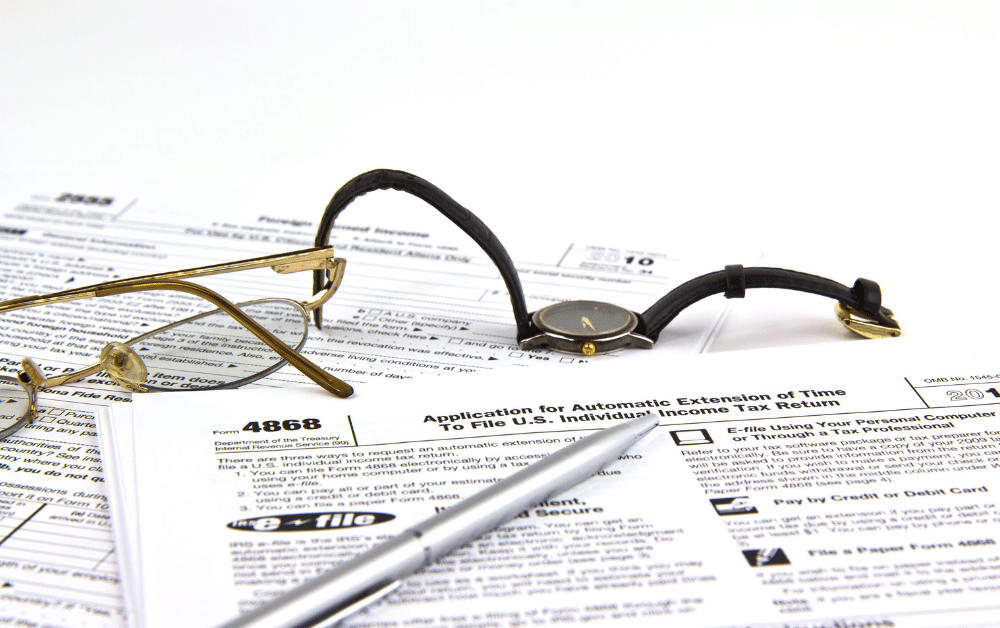Never Filed Taxes: A Complete Guide for First Timers

- Do You Need to File Taxes? Determining Eligibility
- Consequences of Never Filing Taxes
- How to Catch Up on Unfiled Taxes
- IRS Streamlined Filing Compliance Procedures
- Tips for Filing Taxes for the First Time
- Moving Forward: Staying Compliant
- Special Considerations for Expats Who’ve Never Filed
- Never Filed a Return? Get Expert Help with Your Expat Taxes
Americans living overseas are generally required to file a US tax return every year. However, many aren’t aware of this requirement. So, what should a US citizen living abroad do if they’ve never filed an expat tax return? While you might have missed the boat if you haven’t filed before, there are ways to get back on track. Here’s what you need to know.
Do You Need to File Taxes? Determining Eligibility
To determine if you need to file, start with the income thresholds set by the IRS based on filing status (single, married, head of household). If your income meets or exceeds these thresholds, you are required to file a federal tax return.
Other conditions, such as self-employment income or unemployment benefits, have different thresholds. For example, if you have a self-employment income of $400 or more, you will have to file. Anyone who is Married Filing Separately with an income of just $5 or more is required to file.
Exceptions
Some individuals may not need to file a return if their income is below a specific level or comes from non-taxable sources. For example, low-income individuals or those who only receive Social Security income may be exempt from filing.
Benefits of Filing
Failing to file as required can result in severe penalties. Filing can come with benefits, too. You may be able to claim tax credits and refunds, such as the Earned Income Tax Credit and the Child Tax Credit. If you skip filing, you could miss out on these benefits. You might be leaving free money on the table!
Consequences of Never Filing Taxes
If you fail to file or pay your taxes, the fines can be harsh. Here’s what to expect.
Failure to File
If you do not owe any tax debt, you will likely not face any penalties for failing to file. However, you should still file your delinquent returns as soon as you can. (You can even claim any refunds you’re owed for up to three years after the deadline.)
If you fail to file and do owe taxes, you will begin accruing interest on the unpaid tax immediately after the deadline. You may also be subject to a penalty of 5% of the unpaid tax for every month past the deadline, up to 25% of the total unpaid tax. If more than 60 days have passed since the deadline, the minimum amount is $450. If you refuse to file for multiple years, the IRS may take additional measures, such as wage garnishments, bank levies, or asset seizures.
Failure to Pay
If you file a tax return but fail to pay the full amount of taxes you owe, you will also incur penalties. Once again, interest will begin accruing immediately. The additional penalty is 5% of the unpaid tax per month, up to a maximum of 25% of the total.
If you’re behind on your US taxes, you may qualify for a special compliance program to get back on track without penalties. Download our Streamlined Filing Eligibility guide to understand if you qualify.

How to Catch Up on Unfiled Taxes
If you’ve missed filing taxes in past years, it can feel overwhelming to catch up. Fortunately, with some organization and by following a few steps, you can regain compliance and avoid the usual penalties.
Gathering Necessary Documents
The first step to catching up is gathering the essential documentation for each year you missed. This includes W-2s, 1099s, and other income-related records. If you don’t have these documents, you can request a wage and income transcript from the IRS, which will provide income information the IRS has on file. You may also need to gather documents related to deductions, credits, or expenses, such as receipts for charitable contributions or medical expenses.
Filing Multiple Years at Once
If you are behind in your taxes, you may need to file multiple years to catch up. The IRS requires tax returns for any delinquent years within the last six years to become compliant. You can obtain prior-year forms directly from the IRS website or use tax software that supports multiple-year filing. Many tax professionals offer services specifically for filing back taxes.
Installment Plans and Payment Options
If you owe back taxes for multiple years, it’s possible to work with the IRS to manage your debt. The IRS offers several options:
- Installment agreement: This allows you to pay your tax debt over time with monthly payments. The IRS provides different types of installment plans based on the amount owed, including short-term (under 180 days) and long-term agreements.
- Offer in compromise: For those who cannot afford to pay the full amount, the “offer in compromise” program lets you negotiate a reduced payment with the IRS. This is generally an option for individuals facing significant financial hardship.
- Currently not collectible status: If you’re facing a severe financial situation and cannot pay at all, you may be eligible for the IRS to classify your account as “currently not collectible.” This status pauses collections temporarily, though interest may continue to accrue.
Discuss these options with a tax professional to determine which path is best for you.
IRS Streamlined Filing Compliance Procedures
For Americans living abroad who are behind on their taxes, the IRS offers the Streamlined Filing Compliance Procedures. To qualify, you must self-certify that your failure to file was non-willful. Then, file tax returns for the last three years and Foreign Bank Account Reports (FBARs) for the last six, and you will be compliant with IRS standards.
Tips for Filing Taxes for the First Time
1. Organize Your Financial Records
Proper organization is key to an accurate and stress-free filing process. Gather all relevant income documents and ensure they’re complete before you begin. This includes:
- Income statements
- Expense and deduction records
- Tax forms for credits and adjustments
Set up a dedicated folder (physical or digital) to keep these documents organized, which will help you avoid missing critical information and ensure everything is accessible at tax time.
2. Understand Deductions and Credits Available to You
Tax deductions and credits can significantly reduce your tax liability or even lead to a refund. However, they vary based on your income, filing status, and other factors. Research which credits and deductions you qualify for, as these can change annually. A tax professional can also help ensure you don’t miss any benefits.
3. Double-Check Personal Information
Ensure all names, Social Security numbers, and addresses are correct and match IRS records. Simple errors can delay your return or cause it to be rejected.
4. File Electronically to Avoid Delays
E-filing is faster, more secure, and minimizes errors compared to paper filing. The IRS typically processes electronic returns more quickly, which can lead to faster refunds.

Moving Forward: Staying Compliant
After filing for the first time, setting up good habits will make future filings easier.
- Organize documents year-round: Set up a dedicated folder for tax documents, receipts, and income records to streamline filing.
- Automate key deadlines: Use calendar reminders for tax dates like the April filing deadline and quarterly estimated payments if you’re self-employed.
- Review withholding annually: Adjust your W-4 with your employer if needed to avoid large tax bills or refunds.
- Consider making quarterly estimated tax payments: These are optional, but can help to avoid penalties and to avoid an unexpectedly large tax bill when your return is prepared.
- Build a tax prep routine: Review finances periodically to stay informed on potential deductions and filing requirements.
- Stay informed on tax changes: Follow IRS updates or subscribe to relevant tax resources to understand how changes may impact you.
- Get professional support: For complex situations, professional guidance can ensure accuracy and identify tax-saving opportunities.
By implementing these steps, you’ll establish a smooth, consistent approach to tax compliance year after year.
Special Considerations for Expats Who’ve Never Filed
If you’re an American living abroad, your tax obligations can be complex. Here are some critical points to keep in mind as a first-time filer abroad.
Reporting Worldwide Income
The US is one of the few countries that taxes citizens on their worldwide income regardless of where they live. As an American living overseas, you must report all sources of income, including wages, investment income, and rental income, even if it was earned outside the US.
Additional Reporting Requirements
Expats must also be aware of specific reporting requirements under the Foreign Account Tax Compliance Act (FATCA).
- FBAR: If you have foreign bank accounts with a total combined balance exceeding $10,000 at any point during the year, you’re required to file an FBAR. This report is separate from your tax return and is due on April 15, with an automatic extension to October 15.
- FATCA report: Under FATCA, you must report certain foreign financial assets if their total value exceeds specific thresholds, depending on your filing status and whether you reside abroad or in the US. This information is reported on IRS Form 8938.
Expat Tax Benefits
As an American abroad, you may qualify for several expat tax benefits, including:
These benefits will protect you from double taxation and may even erase your US tax bill entirely.
Never Filed a Return? Get Expert Help with Your Expat Taxes
Greenback Expat Tax Services has helped Americans around the world catch up on their tax filing obligations. Contact us, and one of our customer champions will gladly help. If you need very specific advice on your specific tax situation, you can also click below to get a consultation with one of our expat tax experts.



